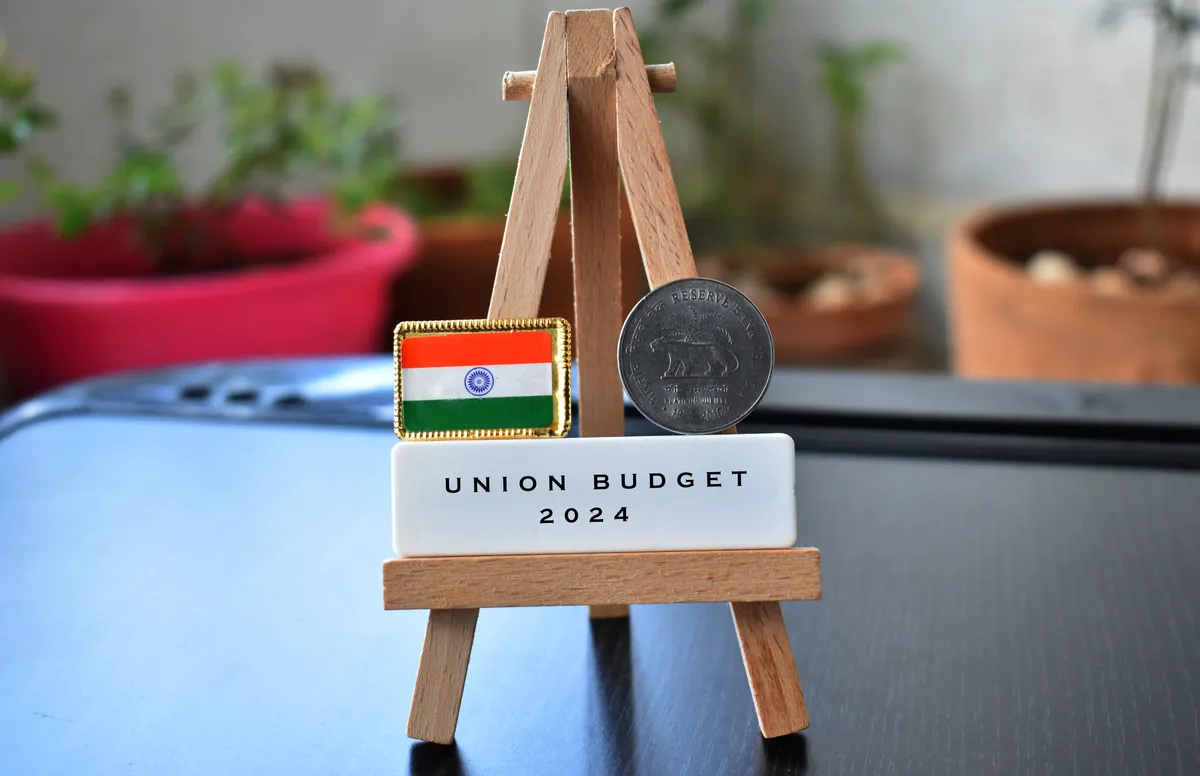Business News
Skill training to digital infrastructure: What education sector expects from Budget 2024
4 min read | Updated on July 04, 2024, 18:24 IST
SUMMARY
For the financial year 2023-24, the education sector was granted ₹1.12 lakh crore, which was the highest ever. In 2022-23, the funds allocated to the education sector were to the tune of ₹1.04 lakh crore. Interestingly, that was the first year when the education budget allocation had hit the ₹1-lakh-crore mark.

Skill training to digital infrastructure: Here’s what the education sector expects from Budget 2024
The stakeholders in the education sector are hopeful of more incentives and higher allocations in the upcoming Union Budget 2024. After the new government took over, Finance Minister Nirmala Sitharaman is expected to present the full budget for FY 2024-25 later this month.
The education sector expects the Finance Minister to announce higher allocations and more incentives to boost research, digital infrastructure, and skill training.
With the new government expected to carry forward the National Education Policy 2020 (NEP) and skill training, the education sector is likely to be a key focus area for Finance Minister Nirmala Sitharaman in the upcoming Budget.
At a broader level, the trend of increasing spending on the education sector is expected to continue in the full budget for 2024-25 as well.
For the financial year 2023-24, the education sector was granted ₹1.12 lakh crore, which was the highest ever. In 2022-23, the funds allocated to the education sector were to the tune of ₹1.04 lakh crore. Interestingly, that was the first year when the education budget allocation had hit the ₹1-lakh-crore mark.
For 2023-24, the school education department was allocated ₹68,804 crore, higher education was allocated ₹44,094.62 crore, while ₹37,453 crore of the corpus was earmarked for the Samagra Shiksha Abhiyan.
Though the numbers look huge in absolute terms, the allocation for the school and the higher education sector together still forms just around 2.9% of the country’s gross domestic product (GDP). FM Sitharaman may, therefore, consider seeking an increase in its budgetary allocation in education to reduce the gap with the global benchmark of 6%, according to experts.
This year it would also be interesting to see whether the Finance Minister addresses the concerns around the irregularities in the National Eligibility-cum-Entrance Test (Undergraduate) examination through budgetary measures to boost digital infrastructure.
In the interim budget, Sitharaman had focussed on medical education and said that the government plans to set up more medical colleges by utilising the existing hospital infrastructure under various departments. Her comments or any budgetary actions on the National Testing Agency (NTA) would, therefore, be keenly awaited.
NEET is conducted by the NTA for admission to undergraduate MBBS/BDS/Ayush Courses every year. As per the government norms, it is mandatory to clear the NEET exam to study medical courses in India.
For this year’s Budget, the education sector is also seeking investments and capacity addition to lay the groundwork for the vision set up by the National Education Policy 2020 (NEP 2020). The policy aims to universalise education from preschool to secondary level with a 100% Gross Enrolment Ratio in school education by 2030. This would mean setting aside more funds for new schools and teacher-training programmes.
The PM SHRI initiative received a special mention from Sitharaman in her last budget speech for its success in ensuring the delivery of high-quality education. The scheme may see a jump in allocation in the full budget for 2024-25.
The PM SHRI scheme is centrally sponsored and intended to develop more than 14,500 PM SHRI schools managed by central government/state/UT government/local bodies including Kendriya Vidyalaya Sangathan (KVS) and Navodaya Vidyalaya Samiti (NVS).
For higher education, the industry seeks strategic allocation of funds towards infrastructure development, research work, and skill enhancement initiatives. Premium higher educational institutions in India should be financially supported to revamp facilities, embrace new-age technologies, and attract top-notch faculty, all while being affordable for the students, the stakeholders suggest.
Digitalisation of education is likely to be another focus area for FM Sitharaman. Experts in the education sector are seeking subsidised tablets and laptops for students and teachers, along with expanding affordable internet access in rural areas. This will ensure effective e-learning initiatives and equip students with the necessary digital skills.
About The Author
Next Story